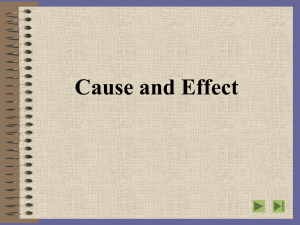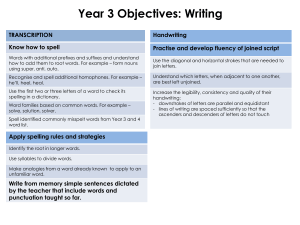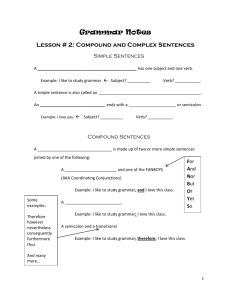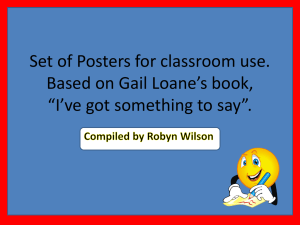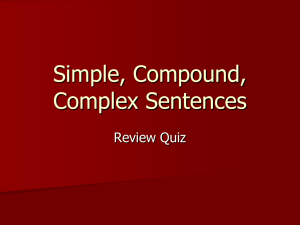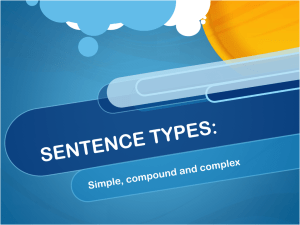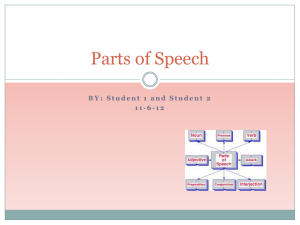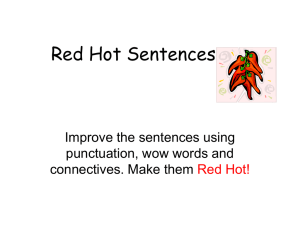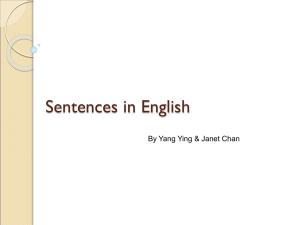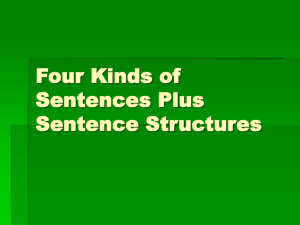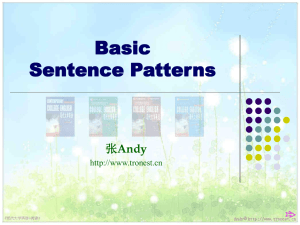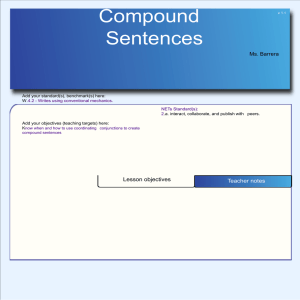Sentence Structure
advertisement
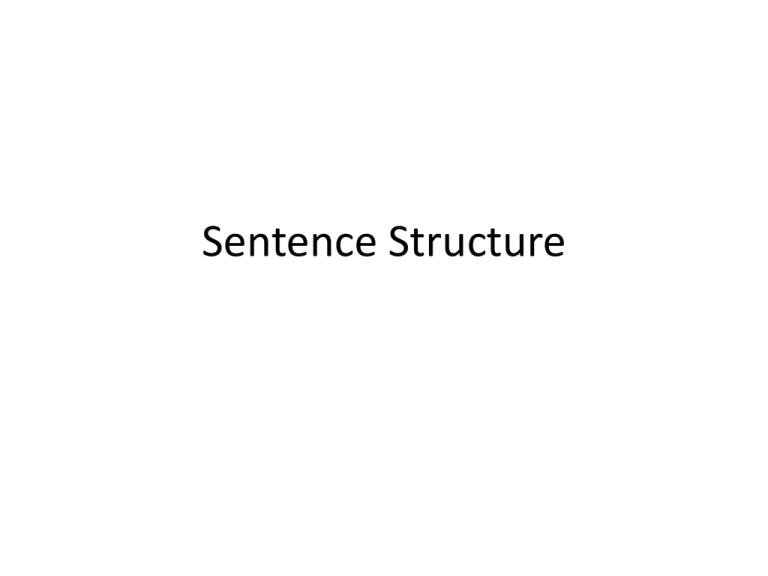
Sentence Structure (page 12R) Sentence Structure We are going to go through these notes quickly since we already learned this material at the beginning of the year. You need to write everything that is in red. Feel free to add anything else to your notes if needed. Here we go… Isn’t a sentences just a sentence? NOPE! Before we learn about the 3 different types of sentences, we need to know what an independent clause and dependent clause are… Before We Begin… Does anyone know what a subject is? – A noun that is the topic of the sentence – Example: Susie ate ice cream today. • Susie is a noun. Susie is the subject Does anyone know what a verb is? – A verb is an action word. – Example: Susie ate ice cream today. • ate is the verb in the sentence 1 INDEPENDENT AND DEPENDENT CLAUSES An Independent clause is a group of words that contains a subject and verb and express a complete thought. It’s a sentence all on its own. – Example: A dependent clause is a group of words that contains a subject and verb and does not express a complete thought. It can not be a sentence on its own. – Example: 2 PRACTICE! CAN YOU HELP ME? Sentence 1. 2. 3. 4. 5. 6. 7. 8. While we were sleeping one night A thunderstorm blew in from the north Rain pelted the windows of my bedroom Although I’m a sound sleeper I awoke with a start When I hear the first clap of thunder Since I had left the window open My books on the windowsill are wet independent or dependent (subordinate) 1. dependent 2. independent 3. independent 4. dependent 5. independent 6. dependent 7. dependent 8. independent 3 TYPES OF SENTENCES Simple Sentences Independent clause = Simple sentence Ex: I love ice cream. Complex Sentences Independent clause + Dependent clause = Complex Sentence Ex: When it’s hot out, I love ice cream. Compound Sentences Independent clause + Independent clause = Compound Sentence Ex: I love ice cream, and I adore chocolate cake. 4 SENTENCE TYPES PRACTICE Simple Sentence: – You could go swimming. – We could take a walk. Compound Sentence: – You could go swimming , or we could take a walk. Complex Sentence: – You will enjoy the new animals at the zoo if you are interested in elephants. 5 Compound sentence Compound sentences always combine two simple sentences with a comma + FANBOYS – For, And, Nor, But, Or, Yet, So THESE ARE CALLED COORDINATING CONJUNCTIONS!!!! Coordinating conjunctions connect 2 independent clauses. There are 7 coordinating conjunctions that link sentences. To remember them, we use the word FANBOYS. . 6 FANBOYS (NOTICE THE COMMAS BEFORE THE CONJUNCTION!) 1. 2. 3. 4. 5. For shows reason. And shows addition. Nor adds a negative. But shows opposition. Or shows an alternative. 6. Yet shows exception. 7. So shows a result. 1. I like to read mystery novels, for I love suspense 2. She goes to the beach, and she takes her dog. 3. I don’t like garlic, nor do I like onions 4. He won’t get into the concert, but he can try. 5. I will take my kids to a movie, or I will stay home. 6. I want to lose weight, yet I eat chocolate daily. 7. I will study the fanboys, so I can impress my teacher. 7 Complex Sentences Complex sentences are combined with SUBORDINATE CONJUNCTIONS (BISAWAWE). Dependent clause + independent clause + BISAWAWE = Complex Sentence. 7 Subordinate conjunctions You can remember them as: BISAWAWE – – – – – – – – Because If Since After When Although While Even though Examples: • If I go to the store • After we ate at the restaurant • While I was studying Exit Ticket (page 12L) Write 2 of the following types and structures of sentences. Feel free to use your notes, but you need to come up with your own sentences. Interrogative Declarative Imperative Exclamatory Simple Compound Complex 2 sentences for each (2 x 7 = 14)
